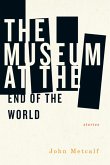A tender and revealing set of stories by the uniquely delicate Bosnian writer, Alma Lazarevska. Avoiding the easy traps of politics and blame, Lazarevska reveals a world full of incidents and worries so similar to our own, and yet always under the shadow of the snipers and the bombs that we know are out there and that occasionally impinge on the story in shocking ways.
Dieser Download kann aus rechtlichen Gründen nur mit Rechnungsadresse in A, B, BG, CY, CZ, D, DK, EW, E, FIN, F, GR, H, IRL, I, LT, L, LR, M, NL, PL, P, R, S, SLO, SK ausgeliefert werden.









